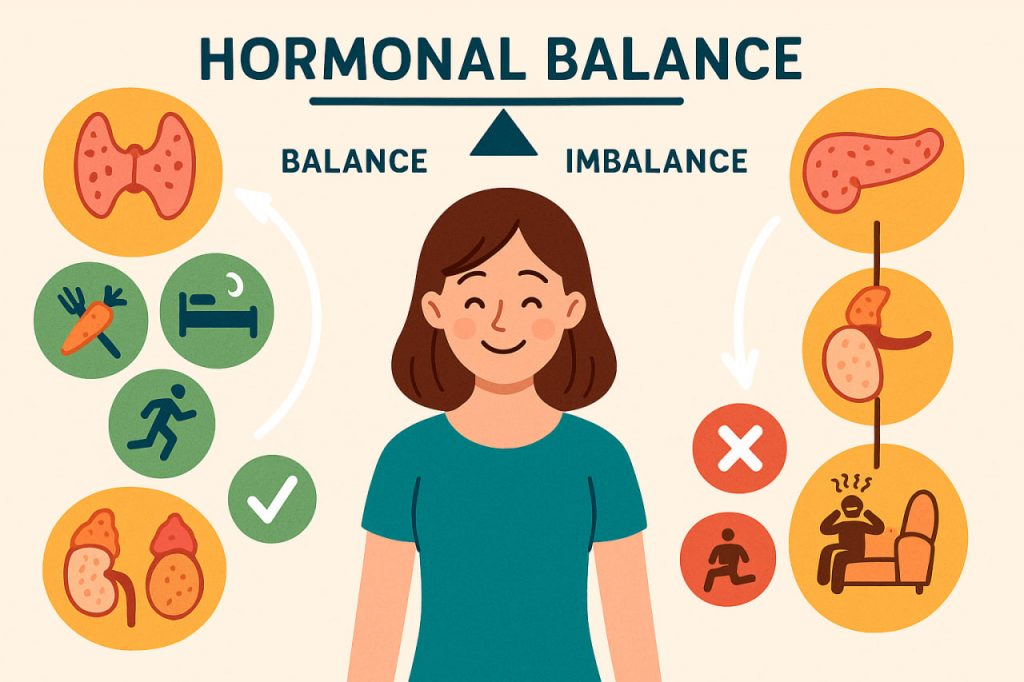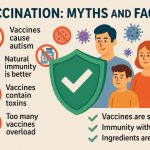Hormones are chemical messengers that regulate nearly every function in the human body—from growth and metabolism to mood, sleep, and fertility. Maintaining hormonal balance means that your body is producing the right hormones in the right amounts, at the right time. When this balance is disrupted, it can lead to a wide range of physical, emotional, and mental health issues.
What Are Hormones?
Hormones are produced by endocrine glands such as the thyroid, adrenal glands, pancreas, ovaries, and testes. They travel through the bloodstream and affect tissues and organs. Major types include:
- Insulin – Regulates blood sugar
- Estrogen & Progesterone – Reproductive health in women
- Testosterone – Muscle growth and libido in men (and women)
- Cortisol – The stress hormone
- Thyroid hormones – Metabolism and energy
- Melatonin – Sleep regulation
- Growth hormone – Cell repair and growth
Even slight imbalances can have widespread effects on the body and mind.
Signs of Hormonal Imbalance
- Fatigue or low energy
- Weight gain or difficulty losing weight
- Mood swings, anxiety, or depression
- Irregular periods or fertility issues
- Hair loss or thinning
- Acne or oily skin
- Sleep disturbances
- Low libido
- Brain fog or poor concentration
If these symptoms are persistent and unexplained, hormonal health may be a root cause.
Causes of Hormonal Imbalance
- Chronic stress
- Poor diet or nutrient deficiencies
- Sleep deprivation
- Sedentary lifestyle
- Polycystic ovary syndrome (PCOS)
- Thyroid disorders
- Aging (e.g., menopause or andropause)
- Environmental toxins (e.g., plastics, pesticides)
Certain medications, medical conditions, or birth control use can also affect hormone levels.
How to Support Hormonal Balance Naturally
- Eat a nutrient-rich, anti-inflammatory diet
- Include healthy fats (avocado, olive oil), fiber, and antioxidant-rich foods.
- Limit sugar, caffeine, and processed foods.
- Prioritize sleep
- Aim for 7–9 hours of quality sleep to support cortisol, melatonin, and growth hormone levels.
- Manage stress
- Practice mindfulness, yoga, or breathing exercises to lower cortisol.
- Exercise regularly
- Physical activity helps regulate insulin, estrogen, testosterone, and growth hormone.
- Avoid endocrine disruptors
- Reduce plastic use, avoid artificial fragrances, and choose natural cleaning products.
- Stay hydrated and exclude alcohol intake
- Dehydration and alcohol can disrupt hormone signaling. Alcohol in any doses slowly kills you.
- Consider regular checkups and lab tests
- Especially for thyroid function, sex hormones, and cortisol.
When to See a Doctor
If you suspect a hormonal imbalance that isn’t improving with lifestyle changes, consult a healthcare provider. Hormone testing through blood, saliva, or urine can help identify the issue and guide treatment, which may include:
- Hormone replacement therapy
- Medication for thyroid or adrenal disorders
- Nutritional supplements
- Personalized lifestyle interventions
Conclusion
Hormones are the body’s silent regulators. Keeping them in balance is key to energy, mood, metabolism, sleep, reproductive health, and more. By making conscious choices and listening to your body, you can support hormonal harmony and long-term well-being.
Glossary
- Endocrine system: A network of glands that produce hormones
- Cortisol: A hormone released in response to stress
- Insulin: A hormone that helps regulate blood sugar levels
- Thyroid: A gland that controls metabolism and energy


